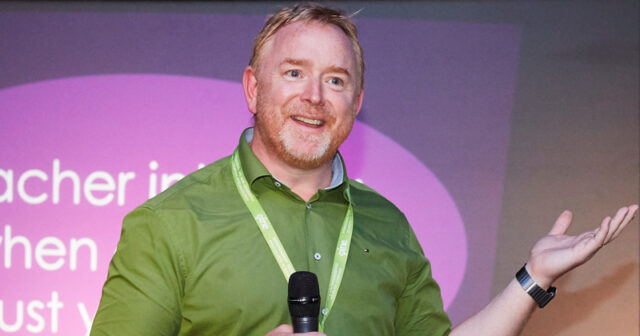A philosophy programme that claims to improve reading and maths skills for pupils as young as nine has been granted a further £1.2 million for testing on a larger scale, despite criticism about the reliability of earlier research.
The Education Endowment Foundation (EEF) released the findings of a trial into philosophy for children (P4C) classes last year that found the sessions could boost maths and reading progress by an average of two months, with an even greater change for disadvantaged children.
The findings were based on a randomised controlled trial of 3,159 primary pupils across 48 schools.
But critics questioned the research, highlighting that it did not include a “statistical significance” check that would ensure the positive results were truly being caused by the philosophy intervention and not by chance.
The EEF has announced this morning that £1.2 million will be handed to SAPERE, the philosophy charity that runs the programme, so it can be rolled out in a further 200 primary schools.
However David Didau, an education consultant and co-author of ‘what every teacher needs to know about psychology’, said the re-grant is a “shameful waste of public money”.

“P4C is an insult to philosophers in my view,” he told Schools Week. “There is no logical or theoretical reason to believe that teaching these banal philosophy activities, which isn’t even real philosophy, would result in an increase in children’s mathematics ability.
“As author Carl Sagan once said, extraordinary claims require extraordinary evidence, and this is very mediocre evidence.”
In response to the criticism, Amelia Foster, chief executive of SAVERE, invited Schools Week to see P4C “in action” and explore what the programme “actually does and the reasons why it has the effects it does”.
She also extended the offer to Didau.
In P4C sessions, pupils and teacher sit in a circle. The teacher then shows a video clip, image or newspaper article with a philosophical dimension, to stimulate pupils’ interest.
After a short period of silent thinking time, the class split into small groups to generate questions that interested them.
A total of 9,000 year 5 and 6 pupils will take now part in the new trial. An independent evaluation by the EEF will then be published.
Sir Kevan Collins, chief executive of the EEF, said the new trial will “allow us to find out if the programme can produce similarly good results when implemented in many different schools”.
The EEF said the findings of its previous P4C report had “moderate security” – a three out of five padlock security rating.
Stephen Gorard, professor in the school of education at Durham University who led the research, said the results were “not huge, but given that it is a relevant achievement of the intervention, it seems to be a success”.
The EEF has also announced funding for five new randomised controlled trials:
– CREST Silver Awards, run by the British Science Association. The impact of after-school clubs will be measured to see if they improve science results. A total of 200 schools with 2,000 11-14 years olds will take part.
– Peeple’s Learning Together programme, run by parent charity Peeple. Its parental engagement approach in early years will be measured to see if it boosts literacy and language skills in three and four year olds. A total of 150 nursery settings will take part.
– Digital Feedback in Primary Maths, developed by St Margaret’s CE Primary and Kyra Teaching School Alliance. To see if teachers’ feedback to pupils can be improved by training teachers to record videos of themselves explaining problems, instead of written comments. The trial will involve 3,000 year 4 and 5 pupils in 60 schools.
– The Maximising the Impact of Teaching Assistants project, developed by the UCL Institute of Education and the University of East London. To measure the deployment of teaching assistants in schools. It will involve 100 primary schools.
– Reciprocal Reading, run by FFT Literacy. A “structured” approach to teaching which will be measured to see if it improves reading comprehension using four strategies: questioning, clarifying, summarising and predicting. A total of 100 primary schools will take part.
Also announced today is a pilot of Teensleep, a programme designed to promote better sleeping habits in teenagers, run by the University of Oxford.
Sir Peter Lampl, chair of the EEF, said: “Evidence is teachers’ greatest ally when it comes to deciding between different programmes or interventions. The evaluations of these six programmes will add to the EEF’s growing source of robust and reliable evidence that teachers and school leaders can use.”







Your thoughts